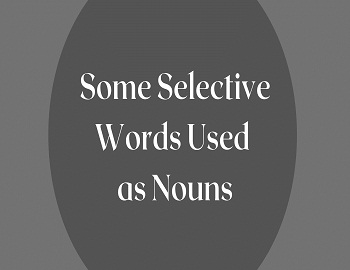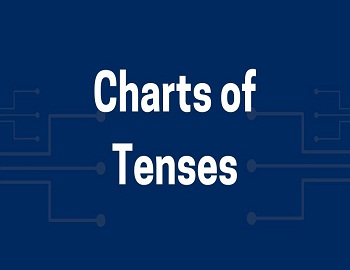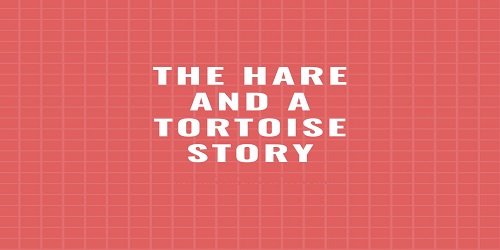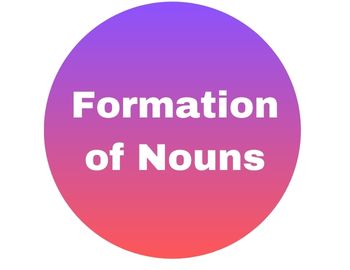The Voice of Verbs:
(1) The Voice of a Verb shows whether its subject acts or is acted upon. There are two Voices i.e. the active and the passive.
When the subject of a Verb acts, the Verb is said to be in the Active Voice; as Mohan wrote (Active Voice) a letter.
When the subject of a Verb is acted upon, the Verb is said to be in the Passive Voice; as A letter was written (Passive Voice) by Mohan.
Note: In the Active Voice the emphasis is laid on the subject that acts on the doer. But in the Passive Voice, the emphasis is on the object that is acted upon. For instance, in the above examples, in the Active Voice, the emphasis is on Mohan, while in Passive Voice the emphasis is on the letter.
(2) A sentence is the Active Voice can be changed into the Passive by making the following changes-
(a) The Object of the Verb in the Active Voice becomes the Subject in the Passive Voice.
(b) The Subject in the Active Voice takes generally the preposition by before it in the Passive Voice.
(c) The verb to be in one of its various forms (according to the tense of the Active Voice) is used with the Past Participle of a Transitive Verb; as,
| Active | Passive |
|---|---|
| She loves her children. | Her children are loved by her. |
| They are digging a well. | A well is being dug by them. |
| He will write a letter. | A letter will be written by him. |
(3) Transitive Verbs with two Objects- When a Transitive Verb has two objects in the Active Voice, either of them can be used as the Subject in the Passive Voice.
| Active | Passive |
|---|---|
| He gave me a pen. | A pen was given to me by him. or I was given a pen by him. |
(4) As a rule only a Transitive Verb can be changed into Passive Voice because an Intransitive Verb has no object.
Exception- Intransitive Verbs admit of Passive Voice when they are connected with a Peposition; as,
| Active | Passive |
|---|---|
| They laughed at you. | You were laughed at by them. |
| They have arrived at a decision. | A decision has been arrived at (by them). |
(5) When a Factitive Verb is changed from the Active Voice to the Passive one, it is the Object and not the Objective Complement which becomes the Subject of the changed sentence; as,
| Active | Passive |
|---|---|
| They made him (Object) king (Objective Complement). | He was made king by them. |
(6) When the Verb is in the second person and expresses command, request, etc, the Verb Let is used in the Passive Voice; as,
| Active | Passive |
|---|---|
| Open your book. | Let your book be opened. |
| Speak the truth. | Let the truth be spoken (by you). |
(7) There are some Quasi Passive Verbs that are Active in form and Passive in sense; as,
- The rose smells sweet (= is sweet when smelt).
- Quinine tastes bitter (= is bitter when tasted).
- The book reads well (= is well when read).
Note: ‘Is come’, ‘was gone’, ‘has arrived’ etc., are in the Active Voice.
(8) When the emphasis is to be laid on the object, the Passive Voice is used. Sometimes even the subject of the Active Voice is omitted; as,
- The king was given a grand reception (by the public).
- My pen was stolen (by some one).
Note: When the above sentences are turned into Active Voice, the omitted or the understood doer or agent must be supplied; as,
- The public gave a grand reception to the king.
- Some one stole my pen.
(9) Chart of Active and Passive Voice:
| Tense | Voice | Indefinite | Continuous | Perfect | Perfect Continuous |
|---|---|---|---|---|---|
| Present | Active | I beat a boy. | I am beating a boy. | I have beaten a boy. | I have been beating a boy. |
| Passive | A boy is beaten by me. | A boy is being beaten by me. | A boy has been beaten by me. | No passive. | |
| Past | Active | I beat a boy. | I was beating a boy. | I had beaten a boy. | I had been beating a boy. |
| Passive | A boy was beaten by me. | A boy was being beaten by me. | A boy had been beaten by me. | No passive. | |
| Future | Active | I shall beat a boy. | I shall be beating a boy. | I shall have beaten a boy. | I shall have been beating a boy. |
| Passive | A boy will be beaten by me. | No passive. | A boy will have been beaten by me. | No passive. |
(10) Study the following examples carefully-
| Active | Passive |
|---|---|
| Marconi invented the radio. | The radio was invented by Marconi. |
| They made me captain. | I was made captain by them. |
| They took him for a ghost. | He was taken for a ghost. |
| You were running a race. | A race was being run by you. |
| The patient had taken the medicine when you sent for his wife. | The medicine had been taken by the patient when his wife was sent for by you. |
| The student will have finished his home task by tomorrow. | The student’s home task will have been finished (by him) by tomorrow. |
| What are you doing here? | What is being done by you here? |
| Who has taken my pen? | By whom has my pen been taken? |
| Who told you this story? | By whom were you told this story? or By whom was this story told you? |
| Which boy has made a noise? | By which boy has a noise been made? |
| Do you deal in pens? | Are pens dealt in by you? |
| Can you lift this weight? | Can this weight be lifted by you? |
| Could you lend me your pen? | Could your pen be lent to me by you? |
| Did she sing a song? | Was a song sung by her? |
| Have you seen your friend? | Has your friend been seen by you? |
| Will anyone tell me what he is doing? | Shall I be told by anyone what is being done by him? |
| Should they play football? | Should football be played by them? |
| Are you helping her? | Is she being helped by you? |
| May I read this book? | May this book be read by me? |
| The headmaster agreed to my proposal. | My proposal was agreed to by the headmaster. |
| Why do you laugh at the beggar? | Why is the beggar laughed at by you? |
| How did you come to this conclusion? | How was this conclusion come to by you? |
| Call in the doctor. | Let the doctor be called in. |
| Give me a cup of tea. | Let a cup of tea be given to me. |
| Tell him to stop his work. | Let him be told to stop his work. |
| Take him to task. | Let him be taken to task. |
| Do not tell a lie. | Let a lie be not told by you. |
| Bring me a pen. | Let a pen be brought to me by you. |
| Please bring me a pen. | A pen may please be brought to me. or You are requested to bring me a pen. |
| Do you know this boy? | Is this boy known to you? (here by you is not used) |
| He disgusts me. | I am disgusted with him. |
| His conduct displeased his teacher. | His teacher was displeased at his conduct. |
| I knew it beforehand. | It was known to me beforehand. |
| The box contains many toys. | Many toys are contained in the box. |
| They say I have stolen your book. | It is said that your book has been stolen by me. or I am said to have stolen your book. |
| People say that the brave deserve all honour. | It is said that honour is deserved by the brave. |
| He expects his sons to serve him. | He expects to be served by his sons. |
| I expected to finish my work soon. | It was expected by me that I would finish my work soon. |
| A strong storm wrecked the ship. | The ship was wrecked (by a strong storm). Note: The words within brackets can be omitted. |
| The enemy has attacked our country. | Our country has been attacked (by the enemy). |
| It is time to stop our work. | It is time for our work to be stopped. |
| One should do one’s duty. | Duty should be done. |
| The hand that rocks the cradle rules the world. | The world is ruled by the hand by which the cradle is rocked. |
| Those who live in glass houses should not throw stones at others. | Stones should not be thrown at others by those who live in glass houses. |
| God helps those who help themselves. | Those who help themselves are helped by God. |









Comments (No)